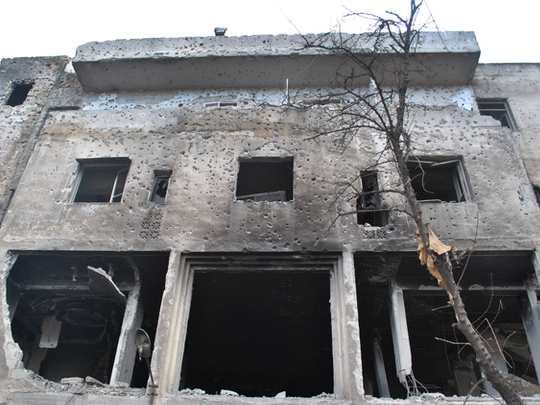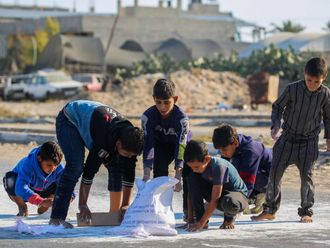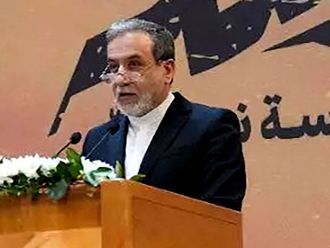
Cairo: The Arab League was to consider a proposal Sunday to revive its suspended observer mission in Syria by expanding it to include monitors from non-Arab, Muslim nations and the United Nations, officials from the 22-member group said.
Meanwhile, the head of the Arab League observer mission to Syria has resigned, an Arab League official told AFP on Sunday. The resignation of General MohammAd AhmAd Mustafa Al Dabi was due to be officially announced at a meeting of Arab foreign ministers in Cairo later in the day, the official said.
The meeting in Cairo will more importantly discuss the proposal to revive the observer mission. The group would make recommendations to an Arab League foreign ministers' meeting scheduled for later on Sunday.
Last month, the League pulled out its observer mission to Syria after it came under heavy criticism for failing to stop the bloodshed engulfing the country.
The Syrians would be unlikely to accept a new observer team. President Bashar Al Assad's regime has pursued a harsh crackdown against the uprising since it began 11 months ago.
The UN estimates that 5,400 people have been killed since March, but that figure is from January, when the world body stopped counting because the chaos in Syria has made it all but impossible to check the figures.
Hundreds are reported to have been killed since. The League officials, speaking on condition of anonymity because the proposals had not yet been adopted, said the Syria Group would also call on Syrian opposition groups to close ranks and unite under one umbrella, a move that they said would place more pressure on the Assad regime.
The Syria Group meeting would be preceded by talks in Cairo by the foreign ministers of the Gulf Cooperation Council, a regional grouping that brings together Saudi Arabia, Kuwait, Qatar, United Arab Emirates, Oman and Bahrain.
The six nations, particularly Saudi Arabia and Qatar, have been campaigning for a tougher stand against Assad's regime and may in their Cairo meeting offer formal recognition of Syria's National Syrian Council, the largest of Syria's opposition groups.
Syria's turmoil began with peaceful protests against Assad's rule, sparking the fierce regime crackdown. But the revolt has grown increasingly militarized as army defectors and armed protesters have taken up arms against the government.
Russia and China last weekend vetoed a Western and Arab resolution at the UN that would have pressured Assad to step down. The draft resolution demands that Assad halt the crackdown and implement an Arab League peace plan that calls for him to hand over power to his vice president and allow creation of a unity government to clear the way for elections.
The veto prompted Western and Arab countries to consider forming a coalition to help Syria's opposition, though so far there is no sign they intend to give direct aid to the Free Syrian Army.
Damascus allowed in Arab League observers in December, but the mission was halted amid the accelerating bloodshed. The Syrians would be unlikely to accept a new observer team.











